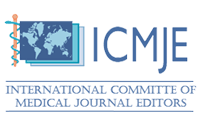Antioxidative Capacity Of Melatonin In Follicular Fluid Of Aged IVF Patients: Beneficial Effects On Oocytes And Embryo
Alessandro Pacchiarotti1, Claudia Valeri1, Gabriele Antonini2, Giulio Biagiotti1, NikosPrapas4, Arianna Pacchiarotti1,3*
Affiliation
1PraxiProvita IVF Center, Praxi DS, Rome, Italy
2Department of urology U. Bracci, Sapienza University of Rome, Italy
3Department of Obstetrics and Gynecology, Infertility and Assisted Reproduction Unit, Sapienza University of Rome, Italy
4IVF Unit, Aristotle University of Thessaloniki, Greece
Corresponding Author
Arianna Pacchiarotti, Department of Obstetrics and Gynecology, Infertility and Assisted Reproduction Unit, Sapienza University of Rome, Italy, Phone: +393483862964; Email: arypac@gmail.com
Citation
Pacchiarotti, A. et al. Antioxidative Capacity of Melatonin in Follicular Fluid of Aged IVF Patients: Beneficial Effects on Oocytes and Embryo. (2015) J Gynecol Neonatal Biol 1(2): 32-36.
Copy rights
©2015 Pacchiarotti, A. This is an Open access article distributed under the terms of Creative Commons Attribution 4.0 International License
Keywords
Abstract
The aim of the present study was to evaluate the role of melatonin supplementation on the main IVF outcomes in aged patients underwent IVF. 358infertile women aged over 40 underwent a shortdown-regulation protocol and were randomized into two groups: 178 patients who received 5 mg melatonin (group A) and 180 patients who did not received melatonin (group B). Oxidative stress values, mature oocytes, embryo quality, pregnancy rates and implantation rates, intrafollicular concentration of melatonin and progesterone were measured.There were significant statistical differences comparing group A with group B in terms of mature oocytes (48.2% vs 35.0%), oxidative stress (CARR U)(190 ± 41 vs 388±64), antioxidative capacity (AOCs) (1,76±0,4 vs 0,89±0,2), progesterone concentration in follicular fluid (10,4±1.1 ml vs 4,3±0,8 ml) and grade I embryos (45,7% vs 30,4%, p = 0.0045). Melatonin intrafollicular concentrations were significantly increased after melatonin treatment (213±35 pg/mL versus 69±23 pg/mL). In conclusion melatonin supplementation during ovarian stimulationin aged patients improve oocyte and embryo quality, increasing progesterone production and scavenging free radicals. Furthermorewe demonstrated that exogenous administrated melatonin is able to accumulate efficiently in the follicular fluid.












